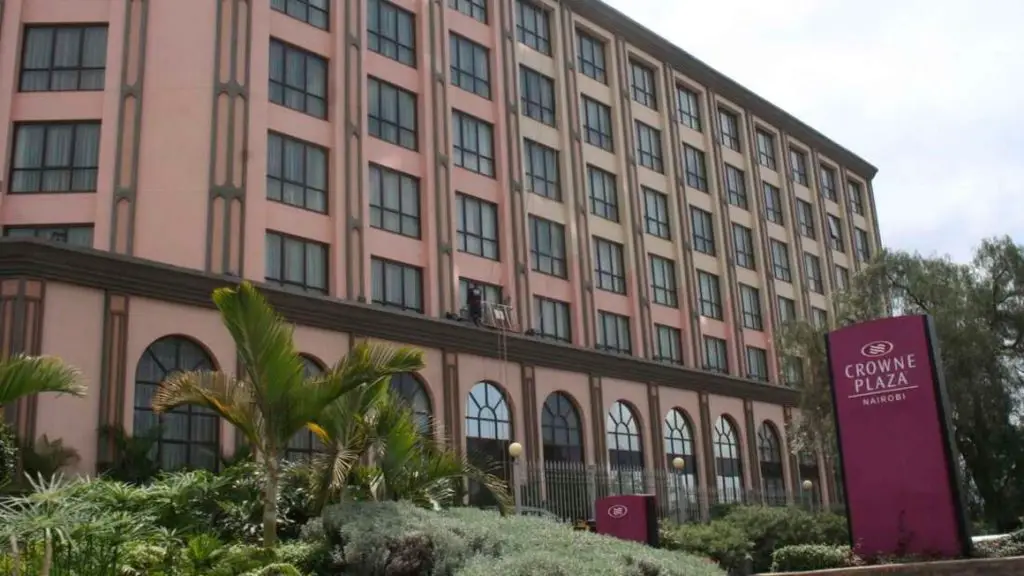- Crowne Plaza Hotel in Nairobi was purchased by the Kasada Hospitality Fund, supported by the Qatar Investment Authority (QIA), the country’s sovereign wealth fund
- Over 18 months, Kasada Hospitality Fund has purchased hotels in South Africa, Rwanda, Senegal, Cameroon, and Namibia
- It is expected that the tourism industry will earn Sh173 billion this year, which is an increase of 18.5 per cent from the last year
Amid a flurry of deals in Kenya’s hotel industry, a Qatari fund buys Crowne Plaza hotel owned by Nazir Ahmed Akbarali for an estimated Sh4.6 billion.
The hotel in Nairobi was purchased by the Kasada Hospitality Fund, supported by the Qatar Investment Authority (QIA), the country’s sovereign wealth fund. The transaction is an addition to Kasada’s asset acquisitions on the continent. Over 18 months, the company has purchased hotels in South Africa, Rwanda, Senegal, Cameroon, and Namibia.
As the tourism sector recovers from the effects of the Covid-19 travel restrictions, leading hotels in Kenya are either closing their doors or undergoing ownership transitions, which coincides with the entry of a private equity firm into the country.
According to a transaction advisor who was involved in the Crowne Plaza purchase, the transaction is valued at KSh4.6 billion and has gained regulatory approval.
The consultant stated that although the Crowne Plaza had been sold, the owners had not yet received the entire amount for the property. Since 2020, there have been discussions about the possibility of selling the hotel.
In 2010, the hotel was opened in the Upper Hill neighbourhood of Nairobi and used the Crowne Plaza brand affiliated with the InterContinental Hotels Group. Crowne Plaza Annexe is a mixed-use complex that offers office space and housing. It was constructed around the end of 2017 by the owner, Akbarali, who invested KSh1.1 billion.
Next to the hotel sits the 15-story Crowne Plaza Annexe, which caters to business travellers and organisations looking for office space in Nairobi’s Upper Hill financial sector. According to regulatory records quoted by Business Daily, entrepreneur Akbarali owns 97.5 per cent of Crowne Plaza. In comparison, his son Anish Akbarali owns 2.5 per cent of the hotel chain.
Golden Jubilee Limited is the company that owns Crowne Plaza.
The owners had planned to sell the hotel at the beginning of 2020, but their plans were derailed when the Covid-19 outbreak began, which resulted in a decrease in travel.
As local tourists take advantage of lower pricing, Kenya’s tourism industry has begun to pull itself out of the recession caused by the COVID-19 virus; however, the number of international tourists is still significantly lower than it was before the pandemic.
It is expected that the industry, which is generally one of the country’s top suppliers of foreign cash, will earn Sh173 billion this year, which is an increase of 18.5 per cent from the previous year.
Earnings dropped to a total of 88.6 billion shillings (Sh88.6 billion) due to governments all over the world restricting the movement of people, primarily through the closing of airspaces.
The number of hotel nights occupied by Kenyan tourists more than doubled during this period, which contributed to the increase in revenue to 146 billion shillings last year.
Due to the epidemic, local resorts, which typically focus most of their marketing efforts on attracting visitors from other countries, were compelled to cater to vacationers from within their own country by providing discounted room rates.
The number of tourists from different countries was still significantly lower than before the epidemic, reaching slightly under 870,500 in 2018, compared to two million in 2019; this year, it is expected that there will be 1.03 million tourists visiting the Country.
The economic consequences of the coronavirus caused several high-end hotels in the city centre of Nairobi to cease operations. These hotels include the Hilton, the InterContinental, and the Laico Regency.
Hotel ownership changes
City Lodge sold Nairobi’s Fairview Hotel, Town Lodge, and City Lodge Two Rivers to real estate firm Actis for a total of one billion shillings and Saudi billionaire Prince Al-Waleed bin Talal parted ways with The Norfolk and Fairmont Mara Safari Club in exchange for 2.8 billion shillings.
KRA and Crowne Plaza Tax Dispute
The Kenya Revenue Authority (KRA) and Crowne Plaza were at odds about taxes at the time of the sale.
The taxman claimed Sh228 million, including transfers to the property’s owners. However, Akbarali asserted that the payments were actually Sh2.2 billion in soft loans from friends and family that were utilised to construct the hotel.
According to the hotel, it is typical for Muslim community members to advance money to their friends and family to start a business. These agreements are made out of trust and are therefore not reduced in writing. The tax appeals panel ruled that the KRA had every right to request the funds from Crowne Plaza.
The French organisation, Accor stake
In April 2019, Kasada Hospitality Fund received US$500 million (Sh60 billion), of which Accor contributed US$150 million and the Qatar Investment Authority US$350 million (Sh42 billion) (Sh18 billion).
